 RC replies:
RC replies:This is only the "To Print" page. To go to the regular page of Ray Carney's www.Cassavetes.com on which this text appears, click here, or close this window if you accessed the "To Print" page from the regular page. Once you have brought up the regular page, you may use the menus to reach all of the other pages on the site.
Subject: She's So Lovely?
Dear Professor Carney,
I've been reading your site for years, being a fan of your writing and Cassavetes who is a big influence on my work.
First off, what's the latest in the ongoing drama of the first cut of Shadows? Any screenings planned for the UK?
What I wanted know is: what's your take on She's So Lovely? I can't find any information about the production itself, was this going to be John's next film after Gloria? Have you read the original script?
Sorry for the questions, hope they're not too much of a bother.
I'm an independent filmmaker based in London. I've made one feature called Bye Bye Miss Goodnight, I doubt you've seen it as it never made it to the states. Maybe it's a Carney 'discovery' in the waiting?
Thanks for your time.
Karan Kandhari
Writer-Director
Oslo Beach Films
Karan,
In haste to answer your questions:
1. A good friend in London has told me he wants to set up a brief lecture/screening tour, but nothing has been worked out yet.
2. There's no relation between the Nick Cassavetes film and his father's work. That's why when Miramax offered me a big paycheck to write about She's So Lovely for its premiere, and treat it as a continuation of John Cassavetes' legacy, I refused to do it. Not only is genius not hereditary, but Nick heavly re-wrote his father's script. He misunderstands his father's work in the same way that many other critics have and continue to. He turned it into "nitty-gritty realism," screaming and tears and shouts (all the Cassavetes clichés that still persist in the media, alas!), and missed the romanticism, the yearning, the dream quality of his work totally. She's De Lovely (the script by the father, not the son) is full of sadness and despair and a feeling of lostness, alienation, and displacement that moves me to tears as an autobiographical document about John's final years. All of that drops out in the son's performance not only through Alison Steadman's tonal archness in her line delivery,éd adaptation.
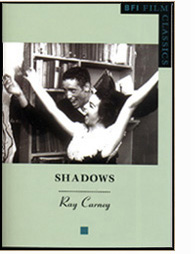 As a side-light, Nick also thought seriously about re-making The Killing of a Chinese Bookie, and re-wrote his father's script with that in mind, but did the same thing: missed the point. Changed the script to make it unrecognizable as a John Cassavetes work.He also re-wrote or pitched productions of several of John's other scripts, including one called South of North (under the new title of Unless That Someone Is You).
As a side-light, Nick also thought seriously about re-making The Killing of a Chinese Bookie, and re-wrote his father's script with that in mind, but did the same thing: missed the point. Changed the script to make it unrecognizable as a John Cassavetes work.He also re-wrote or pitched productions of several of John's other scripts, including one called South of North (under the new title of Unless That Someone Is You).
3. John's next film after Gloria was Love Streams. Other projects, beyond She's DeLovely that he was eager to film in the final years are: East West Game (he started to produce this but broke off when the Gloria production materialized), Son (an astonishing semi-comic work), Begin the Beguine (two men alone in a hotel room), and The Third Day Comes (by Ted Allan). There was also the play, Woman of Mystery, of course.
I have much more on all of this in my (unpublished and untitled) book on: "The Unknown John Cassavetes--The Work He Left Behind."
Hope that helps.
Cheers,
Ray
P.S. I recently taught a film course that dealt with several of the unproduced, unfilmed works from Cassavetes' final years. Click here to read the syllabus for the course.
Subject: Received ideas
I can't resist a comment about your response on She's So Lovely - sadly, Nick sounds like Gena's son. No respect at all for JC's work, but banking off of it and trying to make a name from it. Gena and Nick view JC's films as their property to do whatever they wish with them, which I guess is true legally and unfortunately. But I still can't believe the appalling disrespect for John's memory, not to mention his art. That would be like me taking a paintbrush and drawing happy faces on all of my father's paintings to "improve" them after he's gone - a heartless, sacrilegious sort of vandalism in my view. I couldn't bring myself to do it for ANY reason. And I simply don't understand Nick's need to rewrite his father's work. Why???? Doesn't he have enough creative ideas of his own?
But trying to be fair, I guess it's really no different than Henry Mancini publishing a "freely and adapted" arrangement of Beethoven's Moonlight Sonata. At least Mancini didn't have a way to permanently change or destroy the original and give Beethoven credit simply for the "idea." I don't know much about the history of adaptations and arrangements (I'm sure you do), but it seems that at some point a line needs to be drawn. What's OK and what's not OK? At the very minimum, it seems to me that the dead have no rights to what is done to their intellectual property, at least in America. Is it that way in other countries or is it just Americans riding on the coat-tails of others to make a quick buck?
Marty
Subject: Received values
Thanks for such a thoughtful response. I agree with your feelings. but the facts are that, in America, and in film above all other American arts, money talks. If there's a buck to be made, there is someone thinking of a way to make it -- and to hell with the ethics of the deal. Since there's a heck of a lot of money to be made in American film, that's the way it is. Morals, ethics, respect for an artist's life and work and memory never enter into any of the calculations. They're the last thing anyone involved even thinks about. We (you, me, other site readers) clearly are thinking about these matters in the wrong way. We care about the wrong things. Guess we're just doomed. Or stupid.
R.C.
Subject: too late print
Dear Ray,
For some reason, Paramount claims they don't have a print of Too Late Blues. I thought if anyone knows where a print is hiding it would be you. I dimly recall that a new print was struck about three years ago and circulated a bit. My interest in this film is for inclusion in a jazz series. It seems such a series without Cassavetes would be terribly incomplete.
Your help would be gratefully received.
Thanks.
Sincerely,
Steve Seid
Video Curator
Pacific Film Archive
www.bampfa.berkeley.edu/filmseries/
Steve,
Forgive the delay in responding. I've been hiding out in the cool of Vermont, writing and doing other work. To your question: While Too Late Blues is a wonderful (underrated) film, I haven't shown it for a while, so I haven't been in touch with Paramount lately. But I can tell you that when I put together the national tour of Cassavetes' work shortly after his death in 1989, Paramount had the elements at that point and struck a brand new (and beautiful) print for our events. And they struck new prints two or three times after that for other events I was associated with in the 1990s.
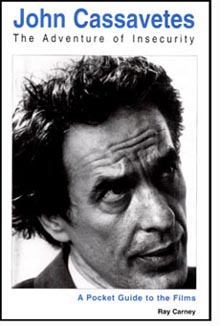 Though I have no first-hand knowledge of the print you allude to three years ago, there is no reason that they would have suddenly destroyed the original elements if they existed for those prints to be made, so they almost certainly are still somewhere if you can find the right person who is willing to search for them. I've encountered this dozens of times with Cassavetes' films in the past. When a studio tells you they don't have something, it's almost always just a matter of a film not being important enough financially for them to search their vaults for it.
Though I have no first-hand knowledge of the print you allude to three years ago, there is no reason that they would have suddenly destroyed the original elements if they existed for those prints to be made, so they almost certainly are still somewhere if you can find the right person who is willing to search for them. I've encountered this dozens of times with Cassavetes' films in the past. When a studio tells you they don't have something, it's almost always just a matter of a film not being important enough financially for them to search their vaults for it.
Each of the above prints would have been returned directly to Paramount when the screenings were over, though the 1989 newly-struck print was given to MoMA as a donation after those events were over.
Sorry I can't be of more help. Best wishes, and good luck. Let me know the outcome. I'd love to show that film again sometime in the near future. It's a great movie. It's a major work that certainly deserves to be out on DVD but (unless I'm mistaken) it still is unavailable in any format. Add another title to a long list of "too good to be released on DVD." Criterion really dropped that ball, didn't they? Took the easy and cheap way out on their Cassavetes release. Gena called the shots on what would be released ... and to hell with the rest of Cassavetes' films. But I didn't hear one reviewer complain -- or even notice the omissions. Typical in that way too.
Ray
Hey Ray-
How is everything? Hope you are having a productive summer. I'm back in Philly these days. I just put most of my work from the last 5 years on Youtube. Hopefully, people will see some fresh visions in this work. I would appreciate if you would post this on your site, since your readers would probably appreciate these films the most. This is my chase for freedom--my running away from a culture that continually tries to rip all of us down. All my pain, joy and secrets are in here. It is the document of my journey so far. My heart is in all this stuff and unfortunately not enough folks have seen it!!
On YouTube: http://www.youtube.com/profile_videos?user=lsabean
On Google Video:
"The March of Time" (2005)
"The Possibility of Being" (2007)
Lucas Sabean
RC replies:
Lucas,
I've simplified your list of urls for the convenience of visitors to the site. Hope you don't mind.
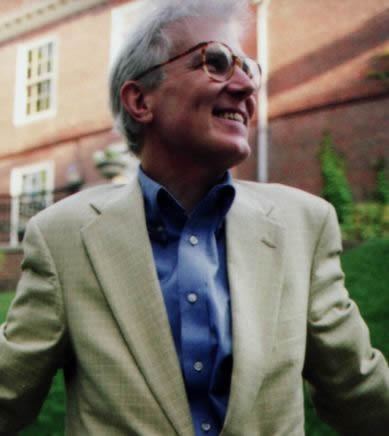 If you'll indulge me, I want to offer a few scattered thoughts about freedom since you mention it in your letter as your artistic goal, and since you also sent me the D.H. Lawrence quote I posted on page 84 about how most people don't want freedom--they want to be told, they want to be followers, they want to be fashion-slaves. They are afraid of freedom. It confuses and threatens them.
If you'll indulge me, I want to offer a few scattered thoughts about freedom since you mention it in your letter as your artistic goal, and since you also sent me the D.H. Lawrence quote I posted on page 84 about how most people don't want freedom--they want to be told, they want to be followers, they want to be fashion-slaves. They are afraid of freedom. It confuses and threatens them.
The point I want to add to yours and Lawrence's is that freedom must be achieved. We are not born free, and we cannot simply will ourselves to be free. We must work to attain it. It must be worked toward -- slowly, gradually, arduously. It takes knowledge and experience and understanding. Freedom is not simply a snap decision, or an act of will. Traps are lurking everywhere to ensnare us -- systems of cultural programming, style systems of behavior, systems of "approved" ways of thinking and feeling. It is impossible to avoid them. Lawrence talks about this when he writes about how a "fine and delicate knowingness" is necessary for an artist to break free. Wordsworth had it backwards: We are born not pure and innocent and free, but compromised and corrupted, locked behind bars, in prison. The Catholic church is right when they say that we are born in a state of "original sin." So you must work, work, work to be free and to stay free. It's not easy. And it's not automatic. The whole world is out to enslave you -- not your body (that's trivial), but your mind, your heart, your feelings. Fight the world's programming system. Struggle to break your mental and emotional chains. Break loose! And stay loose! It's the only way to go. But also be prepared to be misunderstood and reviled for being that way. And that takes me back to the D.H. Lawrence quote you sent me that I posted on the preceding Mailbag page. Make no mistake about it. The world hates expressions of freedom. The world fears freedom. It will do everything in its power to take it away from you or deny you the exercise of it.
Love,
Ray
A postscript from Ray Carney: The preceding comments were barely posted, when an onslaught of responses poured in, each and every one of them disagreeing, in one way or another, with what I said. Many quite vehemently. Several readers talked about the fallacy of my belief in "original sin." Several talked about the holiness and purity and innocence of a newborn infant. How could I not see that? Another reader disagreed with my deprecation of "trash" and "junk," and offered a view of life and experience that included both "junk" and "art" in one vision -- a view of life where "saints" and "shit" were not mutually exclusive categories and where morality was defined not by what "ought to be" but by what "is" -- a view of life where "guilty pleasures" (like watching trashy TV and reading thrillers and comic books) would no longer be "guilty," and critics like me would finally open our minds to the value of even junky experiences.
I include the preceding to be fair to those writers, even as I continue to disagree with them. Babies are born pure and innocent, but the point of my comments about freedom was that the world sets to work programming them from the day they come out of the womb. In contemporary America, the programming involves imposing systems of fear, selfishness, and greed on their souls. (All of the warped modes of understanding life that Republican candidates for office have so successfully exploited to get elected.) By the time children are a few years old, even the freest young spirits are no longer free. Our culture has gotten to them.
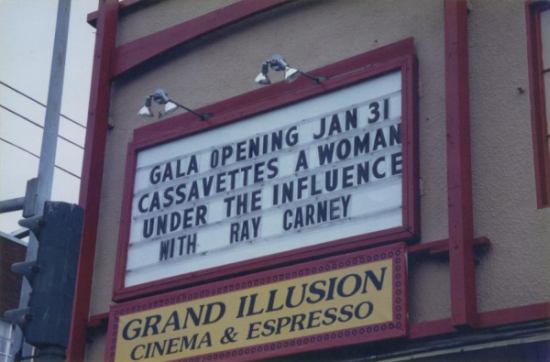 To those who think I am chastising their taste for trash and junk and attempting to make them feel guilty about their "guilty pleasures," I deny the charge. Let them read anything they want. Let them watch the junkiest TV on cable. I don't care. I don't mind. I really don't. Let them do anything they want with their free time and their minds. I am not trying to stop them from doing anything with their lives. All I am saying is that the appointed cultural gatekeepers and arbiters, the critics who write the books, the professors who teach the film courses in our universities, the reviewers who cover movies in the newspapers need to be honest about their assessments. Let them praise trash, but call it trash. Let them enjoy junk, but call it junk. Don't praise a sock puppet movie for its "visual density." Don't praise a mind-numbing action-thriller for its brilliant editing. Call a spade a spade. Let them admit that The Bourne Ultimatum (along with ninety-nine percent of the other Hollywood movies that play in the malls) is no deeper than a children's story-book. In fact, that these movies are a lot less deep than many children's story-books! Let them admit that these movies, the ones that bring in hundreds of millions of dollars in ticket sales every year, are a complete, mindless, stupid, escapist waste of time. Let them admit that ninety-nine percent of Hollywood movies are sentimental schmaltz for women, when they're not amusement-park rollercoaster-rides for men. Let them tell their readers that if watching something like that is how they want to spend their allotted time on earth, then they should go to see it. Let them not lie about it. Let them not fool themselves or their readers about what they are doing. Let them tell the truth and be honest about what they are reviewing. Don't use lies and hypocrisy and fancy post-modern terminology to pretend that what they are sending people to is other than junk. Don't try to justify it intellectually or morally. Don't pretend they are doing something other than watching trash. Admit that these movies are meretricious and stupid, and send people to see them on that basis. That's all I want. Intellectual and aesthetic honesty.
To those who think I am chastising their taste for trash and junk and attempting to make them feel guilty about their "guilty pleasures," I deny the charge. Let them read anything they want. Let them watch the junkiest TV on cable. I don't care. I don't mind. I really don't. Let them do anything they want with their free time and their minds. I am not trying to stop them from doing anything with their lives. All I am saying is that the appointed cultural gatekeepers and arbiters, the critics who write the books, the professors who teach the film courses in our universities, the reviewers who cover movies in the newspapers need to be honest about their assessments. Let them praise trash, but call it trash. Let them enjoy junk, but call it junk. Don't praise a sock puppet movie for its "visual density." Don't praise a mind-numbing action-thriller for its brilliant editing. Call a spade a spade. Let them admit that The Bourne Ultimatum (along with ninety-nine percent of the other Hollywood movies that play in the malls) is no deeper than a children's story-book. In fact, that these movies are a lot less deep than many children's story-books! Let them admit that these movies, the ones that bring in hundreds of millions of dollars in ticket sales every year, are a complete, mindless, stupid, escapist waste of time. Let them admit that ninety-nine percent of Hollywood movies are sentimental schmaltz for women, when they're not amusement-park rollercoaster-rides for men. Let them tell their readers that if watching something like that is how they want to spend their allotted time on earth, then they should go to see it. Let them not lie about it. Let them not fool themselves or their readers about what they are doing. Let them tell the truth and be honest about what they are reviewing. Don't use lies and hypocrisy and fancy post-modern terminology to pretend that what they are sending people to is other than junk. Don't try to justify it intellectually or morally. Don't pretend they are doing something other than watching trash. Admit that these movies are meretricious and stupid, and send people to see them on that basis. That's all I want. Intellectual and aesthetic honesty.
Oh, I forgot. Of course I want one other thing: I want the same reviewers, magazines, newspapers, and television shows to make time and space in their columns for appreciations of non-junky works. Film reviewing is a zero-sum game. Every paragraph about The Bourne Ultimatum or High School Musical or Gremlins takes up space that will therefore NOT be available in the newspaper or magazine or television program for coverage of work that is not trash and junk -- the work of Su Friedrich, Jay Rosenblatt, Todd Haynes, or David Ball, for example. That is the real tragedy, that, as the reviewing machine currently operates, most potential movie-goers don't even know that there is a possibility of seeing something other than junk and trash. They haven't even heard of filmmakers like Bresson and Tarkovsky and Friedrich and Rosenblatt. And the consequence is that, for lack of a favorable review, the few filmmakers who are not making trash and junk don't even get a chance to play their
work outside of New York or Boston or Chicago. The coverage of junk and trash takes up all the space. There is none left for good work. -- R.C.
A note from Ray Carney: I seem to have struck a nerve here. Don't know exactly why. The original posting about "freedom" higher up on this page elicited a slew of negative replies, and I no sooner posted the "postscript" that immediately precedes this note, than several more responses to my "clarification" came in. Here are two of them, one questioning my postscript, the other supporting it (one of the rare letters that agreed with me).
Subject: Babies and Wordsworth
RC,
I'm glad to see you reversed your earlier stated opinion that Wordsworth was wrong and that babies are born free and pure. At least I think that's what you're saying? : ) But it's a bit confusing that you say you disagree with the comments, and then reverse yourself. Wordsworth had it backwards: We are born not pure and innocent and free, but compromised and corrupted, locked behind bars, in prison. The Catholic church is right when they say that we are born in a state of "original sin." Am I missing something? Please clarify re: your position change. What do you or don't you believe re: babies? You've said both: "babies are born innocent and free," and also "we are not born pure and innocent and free." You can't have it both ways at the same time!
Not to beat a horse to death, but what did Wordsworth get wrong, I mean, what exactly did he say in the first place? Is there a quote or an essay to refer to?
M
RC replies:
Not an essay. A poem. Intimations of Immortality. And, in it, Wordsworth got it both right and wrong. Both. Half right. Half wrong.
So I'll switch to another source: Walter Nowick, a Zen master I knew, who said to me once years ago in a galaxy far away:
"We are born round and smooth. Like a bubble on the surf. Like a ball bearing. Like a cork floating on the waves. We roll, we bob, we float freely everywhere. But, as we grow up, as we are educated by our parents and the world in the systems of the world, the lumberyard of consciousness, we grow edges and angles and burrs and points. And we start to stick. We are flat and angular and prickly and sticky, not round anymore, and it becomes hard to move freely. We grab onto whatever we're sitting on. Like a burr or a thorn does. We stick out in places and lose the ability to roll. So how do we get back to where we once were? Can we?"
Well, that's the story of our lives, as I understand it. We must work to sand ourselves down smooth and round and fluid and rollable again. We must work at it all the days of our lives.
RC
Subject: original sin
Hey Ray,
Just saw all the hubbub on your site. Sorry to hear you're getting attacked on that post, as I thought it was probably your best and freshest response in a while. But I didn't like to see you flip-flop on the baby purity thing. You concede that "babies are born pure and innocent" but the world starts programming them from the start. But you were right the first time. Even the supposedly pure and innocent babies are born sinners, that sin being the human sin of laziness and apathy. Some call it sloth. (One of the deadly ones! Ouch!) The world is built to exploit that laziness every babystep of the way. Every single facet of a man's existence, whether it is physical, mental, or spiritual, is completely, thoroughly opposed to strain, toil, effort, pain. The human species didn't become agrarians because they enjoy physical labor, they did it to survive. In fact, allow me to dip back into theology: look at the Garden of Eden. Adam and Eve didn't have to work. They lived in a magical utopia where every part of their basest natures was indulged. As soon as God kicked them out, they finally had to work the earth with their own bloodsweatandtears. They didn't do this because they enjoyed it. No, they thoroughly obeyed Newton's law of a body being at rest. A body at rest needs a Force to act upon them in order for them to get off their asses, and the one Force acting on them that put them into motion was the Force of an empty stomach and a divine boot out of Paradise.
The problem with the world, as you rightly suggest, is that the world's values are like Garden of Eden indulgences that encourage us to return to that state of rest, despite the fact that the one thing mankind needs to do to remain indomitable is to suffer. Everything worthwhile in this world takes time and effort, including freedom, as you (eloquently, I would say) expounded. The reason "junk" is desirable is specifically because it is not hard work. In fact, some of it has the illusion of being hard work, but in reality, that's just a gimmick to get the teens to watch, and the critics to cream their shorts (I'm thinking of stuff like Memento or Matrix or even the more convoluted work of Lynch or the Coens: larks all. In fact, I'm thinking of ANY kind of film that presumes to appeal to the intellect or "make you think". Start with Hitchcock, if you like, and go down the entire Film Theory 101 syllabus from there). But anyway, solving the philosophies of Matrix is not hard work (isn't it just ultra-diluted and -watered-down Descartes?), Sixth Sense is not hard work, The Bourne Anything is not hard work, Paris Hilton being arrested is not hard work, making fun of politicians on a variety show is not hard work: what I am saying is, obviously, that it is all entertainment and entertainment is not hard work. So all junk does is feed and foster that original sin of sloth and laziness and apathy and ultimately gluttony (another one of the deadlies! Ouch again. Greed and selfishness, if you prefer. The reason we're in Iraq.) [But even some of these readers who responded to your post must be students, right? Even they must concede that LEARNING (typically seen by most as an activity good and worthwhile) is hard work right? You can't get good grades if you don't show up for class, unless of course you're a film major. Oh wait.]
Anyway, just thought I'd share some silly mind-muddlings. Forgive the stream-of-consciousness: (As you know, I've been reading lots of Faulkner.)
Keep up that mailblog. It keeps my brain cells fresh and thriving in a land of the dead brain cells.
Darren Pardee
A response from Ray Carney: Thanks, Darren, for the good thoughts. Your points are "spot on" in my opinion. Though I've never thought of it exactly the same way, I guess you could say that all of the experiences I am in favor of are "hard," "demanding," "difficult," or "challenging," while all of pop culture offers an "easy," "relaxed," "lazy" relationship between the viewer/reader/listener and the work. Bresson's films, Balanchine's choreography, Bach's music, Faulkner's novels, Rembrandt's paintings make demands on us; Hitchcock, Tarantino, and the Coen brothers thrill, excite, titillate, entertain us, and let us feel good about ourselves (flattering us that we "get" the artistic allusions and in-jokes and witticisms). Nothing terribly immoral about the second kind of experience, but it is not the path of growth and development. It is not going to raise us up, force us out of our mental ruts and complacencies, make us change ourselves or change how we think and feel. Pop culture gives us easy emotions and comfortable understandings that threaten nothing. And, as you say, that's precisely why people prefer those sorts of "lite" experiences.
You're right about babies too. I left the nuances out in my "postscript" because I've already talked about the "twenty percent" and "eighty percent" issue elsewhere on the site. (Read page 79 of the Mailbag if you don't know what I am referring to.) Imaginatively limited and morally blind human DNA is reproduced every day. But of course that's one of the things nobody wants to admit or talk about. A conspiracy of silence surrounds many of the most basic truths. -- R.C.
A note from Ray Carney: If you live in NYC, be sure to catch Aaron Katz's quietly radiant Quiet City, playing at the IFC Center (323 Sixth Ave at Third St in Manhattan), Wednesday, August 29th through Thursday, September 4th. Your support will help to determine the future fate of the film. To read the brief description I wrote when I showed the film at Harvard recently, click here. -- R.C.
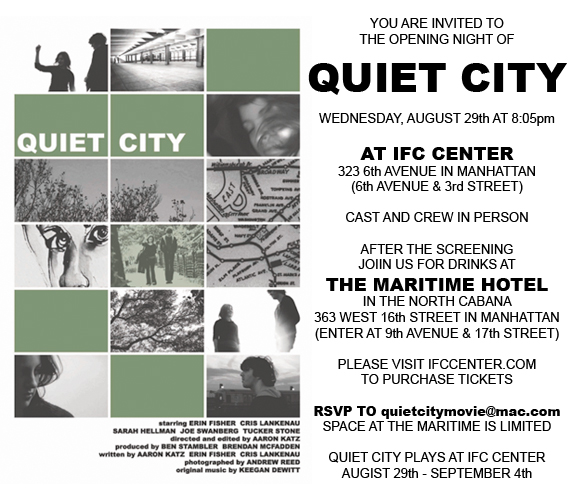
A note from Ray Carney: Some amazing films have come across my desk this summer and some equally amazing recommendations. Stay tuned and I'll try to list a few of them in the near future. -- R.C.
This is only the "To Print" page. To go to the regular page of Ray Carney's www.Cassavetes.com on which this text appears, click here, or close this window if you accessed the "To Print" page from the regular page. Once you have brought up the regular page, you may use the menus to reach all of the other pages on the site.